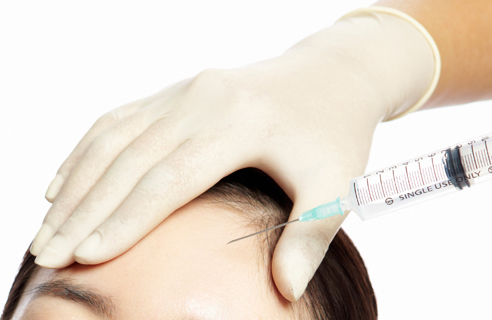New Korean pharmaceutical companies are racing to develop botulinum toxin (BTX) to sell them in the U.S. and Europe instead of the saturated Korean market, industry officials said. Such companies include BioPlus, CKD Bio, Jetema, EuBiologics, and ATGC.
On Thursday, BioPlus announced a 2.3 billion won ($1.7 million) strategic investment deal with ProCell Therapeutics to jointly develop BTX.

By securing a 7.3 percent stake in ProCell Therapeutics, BioPlus became the second-largest shareholder of the former.
BioPlus said it would conduct joint research with its subsidiaries UbiProtein and ProCell to develop a next-generation BTX product with improved tolerance and efficacy.
UbiProtein will develop a recombinant gene and strain of light chain BTX with increased half-live, and ProCell will develop a drug delivery peptide with a peripheral nerve cell targeting function. BioPlus will handle preclinical and clinical trials, production of clinical samples, licensing, and sales.
BioPlus said its existing local and international sales networks for filler products would help it enter the BTX market.
“We aim to successfully develop and commercialize innovative BTX and make it a new cash cow,” an official at BioPlus said.
CKD Bio is a subsidiary of Chong Kun Dang producing active pharmaceutical ingredients.
The company is working on CKDB-501A, an investigational BTX. In addition, it recently completed the local phase 1 study for glabellar wrinkle improvement and is conducting another local phase 1 trial to treat upper extremity muscle stiffness after stroke.
Late last year, CKD Bio said it completed the construction of a factory in Osong that manufactures BTX only. The company has been selling Huons Biopharma’s BTX Wondertox in Korea since 2020.
Jetema is testing an experimental BTX, too. In April, the company received the regulatory nod to conduct a local phase 3 study of Jetema The Toxin (pipeline name: JTM201) to improve glabella wrinkles.
Jetema said it aimed to prove its BTX’s non-inferiority at three institutions – Chung-Ang University Hospital, Konkuk University Medical Center, and Asan Medical Center.
In 2017, Jetema signed a licensing deal with the U.K.’s Public Health England (PHE) to introduce the original BTX strain.
EuBiologics is waiting for the results of the regulator’s review on ATGC-100 to improve glabella lines. The company applied for approval from the Ministry of Food and Drug Safety in April.
In a public filing, EuBiologics said ATGC-100 proved the non-inferiority to Botox in a phase 3 study conducted for eight months from June 2020.
EuBiologics has been conducting the study under a joint development agreement with ATGC since 2019. After commercialization, EuBiologics will manufacture the product, too.
ATGC is separately working on its BTX product. In May, the company received the nod to conduct a phase 3 study of ATCG-110. The company emphasized that its BTX candidate is a “pure type” without non-toxic proteins that often cause resistance.
Major BTX makers such as Hugel, Daewoong Pharmaceutical, Medytox, and Huons Biopharma compete fiercely in the Korean BTX market.
Given the local market situation, other BTX developers will try to sell the products in international markets, industry watchers said.
“Even if a company releases a new BTX product, it will find it difficult to make large profits in the local market,” an industry official said. “The U.S. and Europe have large BTX markets, and AbbVie’s Botox price is highly set. So, Korean BTX will be competitive in terms of price.”
He predicted Korean BTX developers would likely sign a contract with local distributors rather than directly selling BTX.

